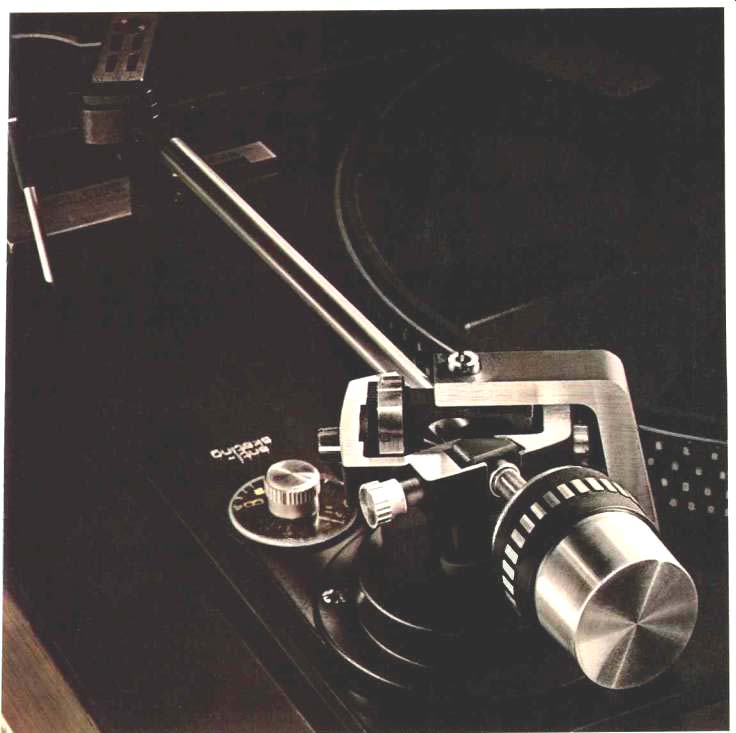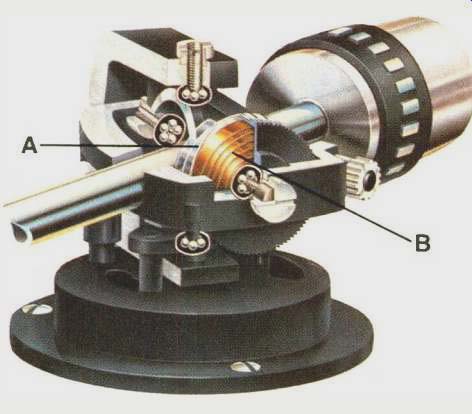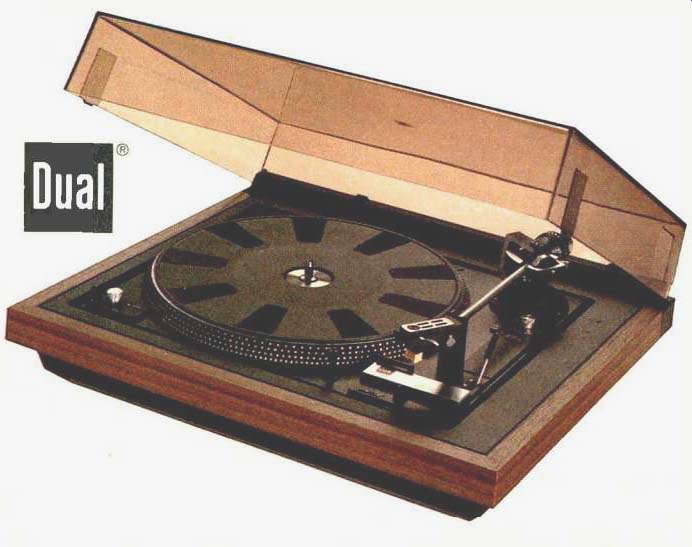We’ll match the tonearm on our lowest-priced turntable against the tonearm on their highest priced turntable.

We'd like to be very clear about what we have in mind. By "their" we mean everyone else's. And, our lowest-priced turntable is the new CS1237.

The CS1237's tonearm is mounted in a four-point gyroscopic gimbal--widely
acknowledged as the finest suspension system available. The tonearm is centered,
balanced and pivoted exactly where the vertical and horizontal axes intersect.
(A) From pivot to tonearm head, the shape is a straight
line, the shortest distance between those two important points. (Curved tonearms
may look sexier, but at the cost of extra mass, less rigidity and lateral
imbalance--none of which is consistent with good engineering practice.) Tracking
force is applied by a flat-wound spring coiled around the vertical pivot
(B), and this force
is maintained equally on each groove wall whether or not the turntable is
level. The tonearm's perfect balance is maintained throughout play.
By contrast, tonearms which apply tracking force by shifting the counterweight forward are actually unbalanced during play and prone to mistracking. For example, on warped records the stylus tends to dig in on the uphill side of the warp and to lose contact on the way down.
Vertical-bearing friction in the CS1237 tonearm is astonishingly low--less than 8 milligrams. It can track as low as 0.25 gram--which means it will allow any cartridge to operate at its own optimum tracking force.
There's still more. The counterweight is carefully damped to attenuate tonearm resonances. Anti-skating is separately calibrated for all stylus types. Cueing is damped in both directions to prevent bounce. And because the CS1237 can play up to six records in sequence, the stylus angle can be set for optimum vertical tracking in either single-play or multiple-play.
To find any other tonearm that seriously matches the CS1237's, you have two choices.
You can consider one of the more exotic separates. But you'll find they cost as much as the entire CS1237. (Price: less than $180, complete with base and cover.) Or you might compare it with one of the higher priced Dual turntables. You'll find a few additional refinements, but no difference in design integrity or manufacturing quality. Which is why no other turntable quite matches a Dual.
Any Dual.
For the life of your records. --Dual--

United Audio, 120 So. Columbus Ave. Mt. Vernon. NY 10553.
(Source: Audio magazine, Nov. 1978 )
Also see: Dual 12xx series turntables (Aug. 1977)
= = = =